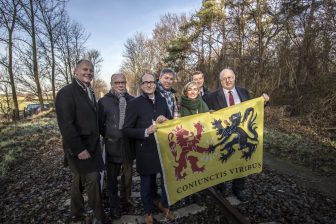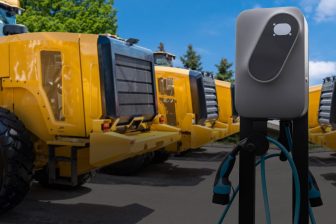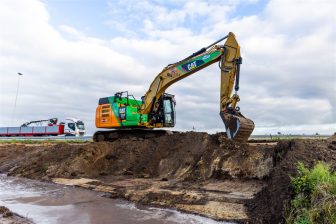Polluter-pays: the only way to sustainable transport
EUROPEAN RAIL INDUSTRY SAYS ‘POLLUTER-PAYS’ PRINCIPLE ONLY WAY TO SUSTAINABLE TRANSPORT
Brussels, Belgium – The revision this year of the Eurovignette Directive is an important step towards the creation of a true level playing field between the different transport modes and towards the promotion of a modal shift in favour of rail, said 2008-01-23 UNIFE Chairman, Mr André Navarri.
Bringing together representatives from the European Commission, academia, industry and operators, UNIFE seminar ‘from external costs to sustainable transport,’ discussed and played-out the challenges facing Europe’s transport modes especially in relation to the hot topic of internalisation of external costs and how this can be linked to greater competitiveness.
Addressing delegates and especially Europe’s Commissioner for Transport Jacques Barrot, Mr Navarri stressed that the revision of the Eurovignette Directive represented a unique opportunity for the EU to strengthen its commitment to sustainable transport.
The current Eurovignette Directive allows EU Member States to levy road-usage charges on heavy commercial vehicles of more than 3.5 tonnes on specific EU-designated Trans European roads but does not oblige the outright implementation of such a scheme. The main novelty expected from the Directive’s revision is the possibility to integrate ‘external costs’ associated with road transport into tolling prices.
“Today, more than ever, we need a framework for the internalisation of external costs reflecting the polluter-pays-principle,” said Mr Navarri. “Rail is currently one of the modes of transport which produces the least external costs. Cars create three times as much external cost as trains and aviation more than twice as much. Yet costs such as congestion, accidents, noise, global warming and air pollution, are not incorporated into the price for mobility.”
In his presentation, Professor Werner Rothengatter from the University of Karlsruhe stated, “as far as the CO2 validation in the European Commission handbook is concerned, I have my doubts the European Commission is following the right path. Multiple instruments for internalising external costs are available,” he said, before adding, “charges are not the only way forward. There are taxes, regulations, emissions standards, etc…”
For his part, Commissioner Barrot acknowledged the role being played by Europe’s rail industry, saying “we need the dynamism which the European rail sector is continuing to show.” And the Commissioner went on to encourage the rail sector to re-confirm its progression in the modes of transport distribution.
Highlighting that the internalisation of external costs need not have negative impacts in terms of global competitiveness, André Navarri cited the shining example of Switzerland. “The Swiss distance-based toll has the highest km-charge in Europe and covers all roads in the country. Yet this has not prevented Switzerland in rising up through the ranks to becoming the most competitive economy in the world in 2006-2007.” Mr Navarri went on to state “that a time when issues such as transport growth, greater transport capacity and environmental degradation are all on the table, rail transport is the only credible transport mode which can sufficiently, effectively and sustainably deliver solutions for 21st century mobility.
U las zojuist één van de gratis premium artikelen
Onbeperkt lezen? Profiteer nu van de introductieaanbieding voor € 10,- per maand.
Bent u al abonnee?



